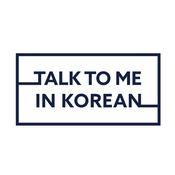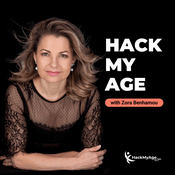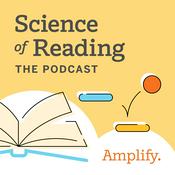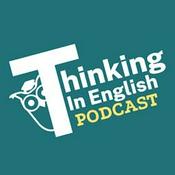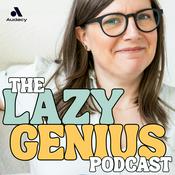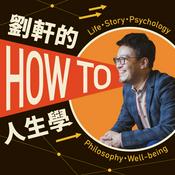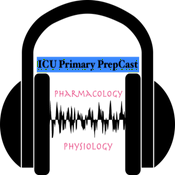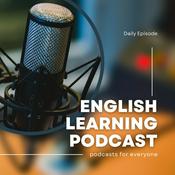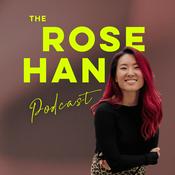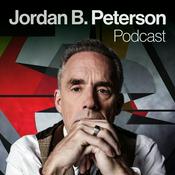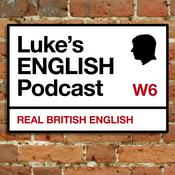447 episodes
- Love in the time of AI? Some people seeking romance or friendship are turning to AI chatbots to fulfill those desires, but could they surpass traditional human relationships? Those who say they can argue that AI can offer empathy and safety, and it’s a solution for those left out of traditional dating. Those saying they can’t argue that intimacy is complicated and cannot be replicated in code. Now we debate: Could Dating an AI Be Better Than Dating a Human?
Arguing Yes: Thao Ha, Associate Professor of Psychology and Director of the @HEART Lab at Arizona State University
Arguing No: Justin Garcia, Executive Director & Senior Scientist at the Kinsey Institute; Chief Scientific Advisor to Match.com; Author of "The Intimate Animal"
Nayeema Raza, Journalist and Host of "Smart Girl Dumb Questions", is the guest moderator.
Join the conversation on Substack—share your perspective on this episode and subscribe to our weekly newsletter for curated insights from our debaters, moderators, and staff.
Follow us on YouTube, Instagram, LinkedIn, X, Facebook, and TikTok to stay connected with our mission and ongoing debates.
Learn more about your ad choices. Visit podcastchoices.com/adchoices - Greenland has become a geopolitical flashpoint. President Trump wants control of it, or at least sovereignty over some areas for military purposes, arguing that the United States gaining some territorial rights in Greenland is a necessity for U.S. security. But some leaders worry that a power grab could pit NATO against the U.S. and weaken an already fragile world order. Now we debate: Is U.S. Control of Limited Territory In Greenland a Strategic Necessity?
Arguing Yes:
Alexander B. Gray, Senior Fellow at the American Foreign Policy Council; Former Deputy Assistant to the President and Chief of Staff of the White House National Security Council
Michael Pillsbury, Senior Advisor for the President’s Office at The Heritage Foundation
Arguing No:
Kori Schake, Senior Fellow and the Director of Foreign and Defense Policy Studies at the American Enterprise Institute (AEI)
Max Boot, Jeane J. Kirkpatrick Senior Fellow for National Security Studies at the Council on Foreign Relations; Columnist at The Washington Post
Emmy award-winning journalist John Donvan moderates
Join the conversation on Substack—share your perspective on this episode and subscribe to our weekly newsletter for curated insights from our debaters, moderators, and staff.
Follow us on YouTube, Instagram, LinkedIn, X, Facebook, and TikTok to stay connected with our mission and ongoing debates.
Learn more about your ad choices. Visit podcastchoices.com/adchoices - In December of 2025, New York State Governor Kathy Hochul announced that after months of negotiations with the state legislature, she was finally ready to sign into law a new bill allowing some patients to request medical assistance in dying, or MAID. That bill is currently sitting on her desk waiting for her signature.
This type of bill has become more and more common. In 1994, Oregon passed the Death with Dignity Act, becoming the first state to allows physician-assisted suicide for the terminally ill. Now 12 states plus the District of Columbia have laws on the books allowing physicians to assist patients in ending their life, within limits. Patients must have a prognosis of less than six months to live, and they must take the medication themselves.
As more and more states discuss passing their own versions of these bills, we revisit the debate we had on this very topic in 2014. The motion that we debated: Legalize assisted suicide. While the preferred language has changed to Medical Aid in Dying, the thorny ethical questions and the complicated medical judgments remain unchanged. Will these laws lead to a slippery slope, where the vulnerable are pressured to choose death and human life is devalued? Or do we need to recognize everyone's basic right to autonomy, the right to end pain and suffering, and the right to choose to die with dignity?
This debate was recorded live in November of 2014 at the Kaufman Music Center in New York.
Arguing Yes:
Peter Singer: Co-Founder of the Effective Altruism movement. Professor of Bioethics, Emeritus, Princeton University. Podcast host, "Lives Well Lived"
Andrew Solomon: Author of “Far From the Tree”, Professor of Clinical Psychology at Columbia University and Weill Cornell Medical College. He also researches at Yale School of Medicine. Currently writing a book about suicide.
Arguing No:
Ilora Finlay, The Baroness Finlay of Llandaff: Former President of the British Medical Association, Member of the House of Lords.
Daniel Sulmasy: André Hellgers Professor of Biomedical Ethics in the Departments of Medicine and Philosophy and Director of the Kennedy Institute of Ethics at Georgetown University.
A few links to articles on the topic:
New York to become latest state to allow aid in dying. What is it? ,USA Today
Do Patients Without a Terminal Illness Have the Right to Die? New York Times
The country gave its citizens the right to die. Doctors are struggling to keep up with demand. The Atlantic Magazine
Join the conversation on Substack—share your perspective on this episode and subscribe to our weekly newsletter for curated insights from our debaters, moderators, and staff.
Follow us on YouTube, Instagram, LinkedIn, X, Facebook, and TikTok to stay connected with our mission and ongoing debates.
Learn more about your ad choices. Visit podcastchoices.com/adchoices - Every click, search, and online purchase feeds the data economy, driving AI, global business, and even political campaigns. But with risks growing in the private and public spheres, is Big Data advancing society or undermining its foundations? Supporters argue Big Data powers innovation by fueling breakthroughs in medicine, public health, and everyday efficiency. Yet critics warn that it erodes privacy, concentrates power, and threatens democracy. In the age of algorithms and analytics, is Big Data a necessary innovation or a dangerous intrusion?
Arguing "Innovation": Kenneth Cukier, Deputy Executive Editor at The Economist
Arguing "Intrusion": Carissa Véliz, Associate Professor at the Faculty of Philosophy and the Institute for Ethics in AI at the University of Oxford
Xenia Wickett, Geopolitical strategist, moderator at Wickett Advisory, and Trustee of Transparency International UK, is the guest moderator.
Join the conversation on our Substack—share your perspective on this episode and subscribe to our weekly newsletter for curated insights from our debaters, moderators, and staff.
Follow us on YouTube, Instagram, LinkedIn, X, Facebook, and TikTok to stay connected with our mission and ongoing debates.
Learn more about your ad choices. Visit podcastchoices.com/adchoices - Prostitution remains heavily stigmatized and legally complex globally. Those in favor of paying for sex and support decriminalization argue that it’s a profession that deserves as much respect as any other. Those against it, and who support the Nordic Model, argue that prostitution leads to inequities between sex buyers and workers, exploitation, and coercion, and can open the door to human trafficking. Now we debate: Is It OK to Pay for Sex?
Arguing Yes: Kaytlin Bailey, Sex Workers Rights Advocate; Founder & Executive Director of Old Pros and Host of “The Oldest Profession Podcast”
Arguing No: Yasmin Vafa, Human Rights Attorney; Co-Founder and Executive Director at Rights4Girls
Emmy award-winning journalist John Donvan moderates
Learn more about your ad choices. Visit podcastchoices.com/adchoices
More Education podcasts
Trending Education podcasts
About Open to Debate
America is more divided than ever—but it doesn’t have to be. Open to Debate offers an antidote to the chaos. We bring multiple perspectives together for real, nonpartisan debates. Debates that are structured, respectful, clever, provocative, and driven by the facts. Open to Debate is on a mission to restore balance to the public square through expert moderation, good-faith arguments, and reasoned analysis. We examine the issues of the day with the world’s most influential thinkers spanning science, technology, politics, culture, and global affairs. It’s time to build a stronger, more united democracy with the civil exchange of ideas. Be open-minded. Be curious. Be ready to listen. Join us in being Open to Debate. (Formerly Intelligence Squared U.S.)
Podcast websiteListen to Open to Debate, The Tony Robbins Podcast and many other podcasts from around the world with the radio.net app
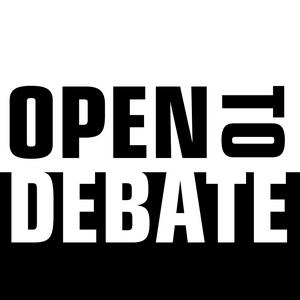
Get the free radio.net app
- Stations and podcasts to bookmark
- Stream via Wi-Fi or Bluetooth
- Supports Carplay & Android Auto
- Many other app features
Get the free radio.net app
- Stations and podcasts to bookmark
- Stream via Wi-Fi or Bluetooth
- Supports Carplay & Android Auto
- Many other app features


Open to Debate
Scan code,
download the app,
start listening.
download the app,
start listening.











